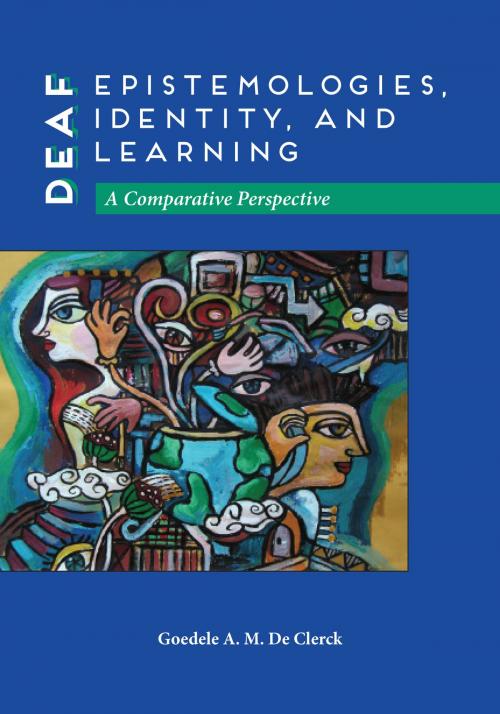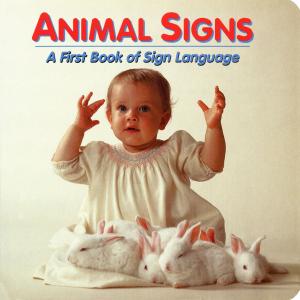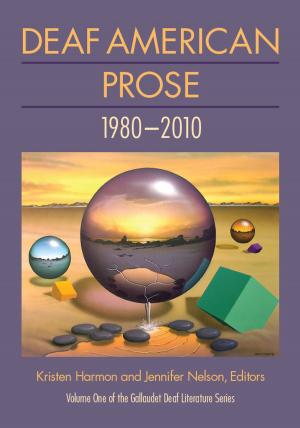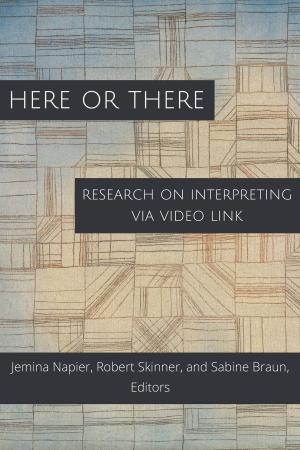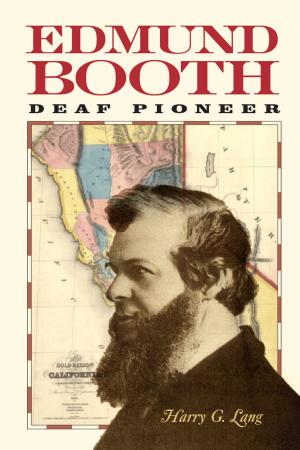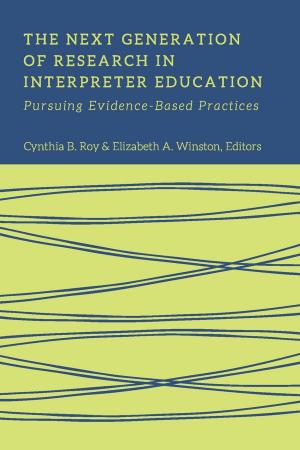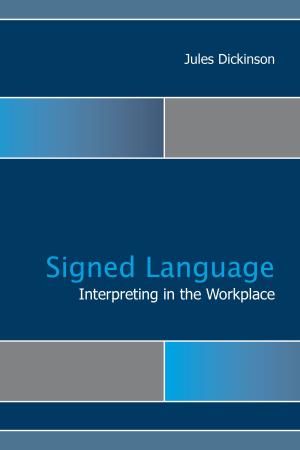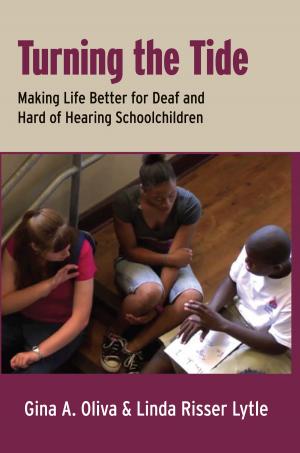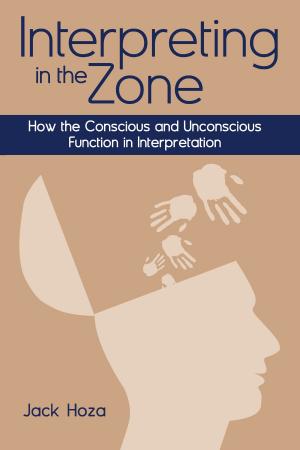Deaf Epistemologies, Identity, and Learning
A Comparative Perspective
Nonfiction, Reference & Language, Education & Teaching, Special Education| Author: | Goedele A. M. De Clerck | ISBN: | 9781563686719 |
| Publisher: | Gallaudet University Press | Publication: | January 31, 2017 |
| Imprint: | Gallaudet University Press | Language: | English |
| Author: | Goedele A. M. De Clerck |
| ISBN: | 9781563686719 |
| Publisher: | Gallaudet University Press |
| Publication: | January 31, 2017 |
| Imprint: | Gallaudet University Press |
| Language: | English |
Goedele A. M. De Clerck presents cross-cultural comparative research that examines and documents where deaf flourishing occurs and how it can be advanced. She spotlights collective and dynamic resources of knowledge and learning; the coexistence of lived differences; social, linguistic, cultural, and psychological capital; and human potential and creativity.
Deaf Epistemologies, Identity, and Learning argues for an inclusive approach to the intrinsic human diversity in society, education, and scholarship, and shows how emotions of hope, frustration, and humiliation contribute to the construction of identity and community. De Clerck also considers global to local dynamics in deaf identity, deaf culture, deaf education, and deaf empowerment. She presents empirical research through case studies of the emancipation processes for deaf people in Flanders (a region of Belgium), the United States (specifically, at Gallaudet University in Washington, DC), and the West African nation of Cameroon. These three settings illuminate different phases of emancipation in different contexts, and the research findings are integrated into a broader literature review and subjected to theoretical reflection.
De Clerck’s anthropology of deaf flourishing draws from her critical application of the empowerment paradigm in settings of daily life, research, leadership, and community work, as she explores identity and well-being through an interdisciplinary lens. This work is centered around practices of signed storytelling and posits learning as the primary access and pathway to culture, identity, values, and change. Change driven by the learning process is considered an awakening—and through this awakening, the deaf community can gain hope, empowerment, and full citizenship. In this way, deaf people are allowed to shape their histories, and the result is the elevation of all aspects of deaf lives around the world.
Goedele A. M. De Clerck presents cross-cultural comparative research that examines and documents where deaf flourishing occurs and how it can be advanced. She spotlights collective and dynamic resources of knowledge and learning; the coexistence of lived differences; social, linguistic, cultural, and psychological capital; and human potential and creativity.
Deaf Epistemologies, Identity, and Learning argues for an inclusive approach to the intrinsic human diversity in society, education, and scholarship, and shows how emotions of hope, frustration, and humiliation contribute to the construction of identity and community. De Clerck also considers global to local dynamics in deaf identity, deaf culture, deaf education, and deaf empowerment. She presents empirical research through case studies of the emancipation processes for deaf people in Flanders (a region of Belgium), the United States (specifically, at Gallaudet University in Washington, DC), and the West African nation of Cameroon. These three settings illuminate different phases of emancipation in different contexts, and the research findings are integrated into a broader literature review and subjected to theoretical reflection.
De Clerck’s anthropology of deaf flourishing draws from her critical application of the empowerment paradigm in settings of daily life, research, leadership, and community work, as she explores identity and well-being through an interdisciplinary lens. This work is centered around practices of signed storytelling and posits learning as the primary access and pathway to culture, identity, values, and change. Change driven by the learning process is considered an awakening—and through this awakening, the deaf community can gain hope, empowerment, and full citizenship. In this way, deaf people are allowed to shape their histories, and the result is the elevation of all aspects of deaf lives around the world.
